29 of the Best Science Fiction Books Everyone Should Read
Best Sci Fi Books of All Time: Top 50 of 2022 and All Time
When you hear sci fi, do you normally think of H.G. Wells, Isaac Asimov, Jules Verne, Arthur C. Clarke, Ray Bradbury, or George Orwell? Or do some more recent authors come to mind?
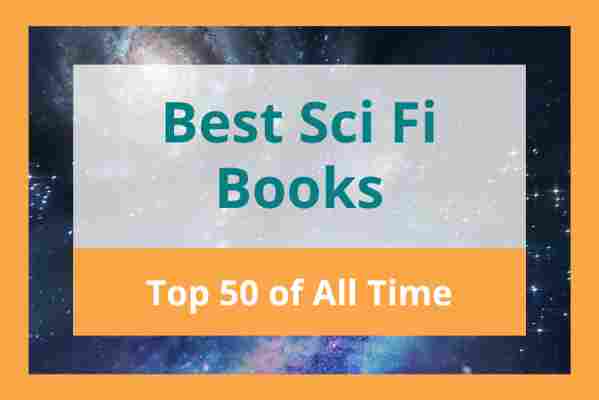
In this article, we’ve compiled a list of the best science fiction books of all time. Happy reading!
How We Chose the Best Science Fiction Novels
To compile this list, we compiled some of the biggest reader polls from Goodreads and National Public Radio’s Books, which were voted on by thousands of devoted science fiction readers.
Best New Sci Fi Books of 2022
Science fiction is an old genre, but plenty of new writers are innovating and pushing the genre forward. Here are 15 of the best sci fi books of 2022.
1. A Desolation Called Peace, Arkady Martine
A must read if: you love epic space operas and explorations of alien cultures.
A Desolation Called Peace is the sequel to Martine’s spectacular debut A Memory Called Empire, which won the Hugo Award.
An alien armada is soon to breach the Teixcalaanli Empire. Mahit Dzmare and Three Seagrass must figure out how to communicate with aliens entirely different from anyone they’ve met before, or else risk the potential destruction of their empire.
2. Sea of Tranquility, Emily St. John Mandel
A must read if: you like character-driven books that blend literary fiction with time travel and metaphysics.
In Sea of Tranquility, Emily St. John Mandel deftly braids together three separate timelines: one in the Canadian wilderness in 1912, one in the 22nd century, and one in the distant future.
All three stories come together when a time traveler tries to discover the truth behind the strange anomalies that occur in each place and time.
3. Eyes of the Void, Adrian Tchaikovsky
A must read if: you love epic warfare set in space with the fate of the universe hanging in the balance.
The second book in Tchaikovsky’s The Final Architecture series, this space opera follows the Human Colonies who are under attack by the Architects. This book has everything you could want from an excellent space opera: interstellar travel, political wars, alien cultists, and everything in between.
4. How High We Go in the Dark, Sequoia Nagamatsu
A must read if: you want to process the pandemic through tender, character-driven stories.
In this series of vignettes, Nagamatsu paints a complex picture of a future society dealing with a pandemic. The darkest, strangest, and most tender aspects of human nature come to light in these brilliant stories.
5. A Prayer for the Crown-Shy, Becky Chambers
A must read if: you love cozy adventures with heart-warming characters.
The second book in Chambers’ Monk and Robot, A Prayer for the Crown-Shy follows Sibling Dex, a tea monk, and Mosscap, a robot, who journey together across the moon they call home to try to find philosophical answers about life and the universe.
This book is gentle, wholesome, and sweet.
6. The Candy House, Jennifer Egan
A must read if: you like thought-provoking fictional technologies.
Bix Bouton has invented a new technology, “Own Your Unconscious,” which allows you to access your memories and share them in exchange for access to the memories of others.
The Candy House explores the effects of this technology and what they say about privacy and intimacy.
7. The School for Good Mothers, Jessamine Chan
A must read if: you’ve ever been troubled by society’s restrictive norms for womanhood and motherhood.
On a particularly bad day, Frida Liu leaves her daughter at home unsupervised, which gets her sent to an institution that will teach her how to be a “good” mother. The School for Good Mothers is a chilling and timely read that examines societal norms in a new way.
8. The Kaiju Preservation Society, John Scalzi
A must read if: you like funny, fantastical adventures and strange creatures.
The Kaiju Preservation Society is an “animal rights organization” that protects animals from an alternate dimension. Scalzi brings together the best of science fiction, fantasy, and comedy in an exciting, genre-blending tale.
9. Dead Silence, S.A. Barnes
A must read if: you like horror stories and science fiction set in space.
Claire Kovalik and her crew pick up a distress signal in space and find the Aurora, a famous space-liner that vanished on its first voyage. As the crew explores the ship, they realize that something went very wrong. Dead Silence has been described as Titanic meets The Shining.
10. Tell Me an Ending, Jo Harkin
A must read if: you like Black Mirror and Eternal Sunshine of the Spotless Mind.
In Tell Me an Ending, thousands of people are shocked to learn that they once chose to have a memory erased from their minds, and now they have the opportunity to get that memory back.
This dystopian novel explores the consequences of leaving memories buried versus confronting them head-on.
11. Goliath, Tochi Onyebuchi
A must read if: you like science fiction that holds up a mirror to the racism and classism in our world.
In this powerful story, Onyebuchi explores a future where the rich have migrated to space colonies, forcing poorer, largely BIPOC populations to survive on an apocalyptic Earth. Goliath follows multiple characters as they search for meaning in a system that’s designed to push them down.
12. The Paradox Hotel, Rob Hart
A must read if: you like thrilling mystery stories and time-travel conspiracies.
The Paradox Hotel is an establishment where the rich can visit different eras of time, from the Jurassic Period to WWII and everything in between.
January Cole, the hotel’s head of security, must solve a murder on the hotel’s premises while ensuring nobody messes with the timeline.
13. Mickey7, Edward Ashton
A must read if: you like entertaining, witty stories with serious themes.
Mickey7 is an Expendable, a disposable employee sent on dangerous missions that nobody else is willing to undertake. Each time he dies, he gets put into a new body.
But when something goes wrong on a scouting mission and he realizes he’s been replaced by Mickey8, Mickey7 must figure out how to avoid dying for good.
14. Upgrade, Blake Crouch
A must read if: you like thrilling, fast-paced stories about genetic engineering.
Logan Ramsey’s genome has been hacked, causing his body to change in unexpected ways: he can concentrate better, read faster, and more. In order to defeat the enemy at hand, he’s going to have to become something other than human.
15. Hunt the Stars, Jessie Mihalik
A must read if: you like your sci fi with a side of romance.
Octavia Zarola and her bounty hunting crew accept a job for a price they can’t refuse. But they soon realize that they might be on the verge of starting a new war. This exciting sci fi romance is full of plot twists and found family.
Best Sci Fi Books of All Time
Now it’s time to look at some of the best sci fi books of all time. These classics have been beloved for generations.
1. The Left Hand of Darkness, Ursula K. Le Guin
A must read if: you like literature that examines the prejudices inherent in human psychology and society.
First published in 1969, The Left Hand of Darkness follows a human ambassador sent to a planet free of sexism, where all inhabitants have fluid genders and believe in fairer philosophies than human societies do.
Half a century later, this landmark novel is still considered one of the greatest science fiction masterpieces of all time.
2. 1984, George Orwell
A must read if: the ubiquity of technology and government surveillance concerns you.
A futuristic society where a totalitarian government watches over all citizens and orchestrates all activities. With themes of nationalism, censorship, and surveillance, this classic science fiction novel is just as relevant today as it was when it was published in 1949.
3. The Hitch-Hiker’s Guide to the Galaxy, Douglas Adams
A must read if: you want to meet some of the funniest and original aliens in the universe.
First in this comedy sci fi series, The Hitch-Hiker’s Guide to the Galaxy follows Arthur Dent on his adventures through the galaxy.
As the only survivor after Earth is destroyed to make way for an intergalactic bypass, Dent runs into a motley cast of aliens including Zaphod Beeblebrox, President of the Galaxy, and Marvin the depressed android.
This might be one of the funniest and wittiest books in the science fiction genre.
4. Ender’s Game, Orson Scott Card
A must read if: you love the in-depth strategy of space wars.
In this 1985 military sci fi novel, Ender Wiggin is a child prodigy who gets drafted to Battle School to train for the interplanetary war against the alien Buggers.
Card creates a multi-layered world full of fascinating alien technology and themes related to the consequences of prejudice and war.
5. Dune, Frank Herbert
A must read if: you love delving deep into the politics and factions of interstellar noble houses.
Set in the distant future, where life and culture revolve around the use and exchange of the spice melange. Dune follows young Paul Atreides, heir of House Atreides, and explores the complex politics, religion, ecology, and technology among the many factions vying for control of the spice trade.
6. Fahrenheit 451, Ray Bradbury
A must read if: you've ever been horrified by someone wanting to ban a book.
In this 1953 dystopian novel, television dominates and books are outlawed. Sounds like a nightmare, but this controversial book is still a favorite.
One fireman, whose job it is to start fires, begins to see the value of printed literature. Profound and heart wrenching, Fahrenheit 451 is widely regarded as one of Ray Bradbury’s best works.
7. Brave New World, Aldous Huxley
A must read if: you've ever worried about technology controlling the masses.
A classic prophetic novel, Brave New World describes the horrors of a future world with no individual freedom at all—one where material comfort and physical pleasure provided by drugs and sex are the only concerns.
8. Animal Farm, George Orwell
A must read if: you want to experience the greatest allegory ever written.
Animals on a farm overthrow their human owners and set up a deeply flawed government that seems weirdly familiar. This book is an interesting and engaging critique of the Russian Revolution of 1917.
Many high schools still require students to read Animal Farm, because it’s such a classic work of science fiction.
9. The Foundation Trilogy, Isaac Asimov
A must read if: you love world-saving heroes and intergalactic coups.
A band of psychologists, led by psycho-historian Hard Seldon, plan a colony that encourages art, science, and technology on the declining Galactic Empire to preserve humankind’s knowledge.
The plan is to build Foundations that will reduce the Dark Age from 30,000 years to 1,000 years.
10. Neuromancer, William Gibson
A must read if: you want to know where the terms “cyberspace” and “the Matrix” came from.
A burned-out computer whiz steals a security code locked in the most heavily guarded databank in the solar system.
William Gibson’s Neuromancer is complete with the rise of megacorporations, Cold War espionage, military conspiracies, and much more.
11.Stranger in a Strange Land, Robert A. Heinlein
A must read if: you want to challenge your social and cultural norms.
Valentine Michael Smith, born and raised on Mars, comes to Earth and stuns Western culture with his superhuman abilities. Mike has a claim to legal ownership of Mars, which makes him a valuable commodity to Earth’s government.
Stranger in a Strange Land is a classic critique of political systems and organized religion.
12. Kindred, Octavia Butler
A must read if: you want a complex story that is part slave memoir, part fantasy, and part historical fiction.
A young black woman living in 1970s California suddenly and inexplicably finds herself in 1815 on a slave plantation in Maryland.
When she saves a white child from drowning, she realizes that he is her ancestor and, even though he grows into a despicable, slave-owning man, she must protect his life if she ever hopes to be born.
13. Slaughterhouse-Five, Kurt Vonnegut
A must read if: you want to understand the effects of war and get a few laughs at the same time.
Billy Pilgrim returns home from World War II only to be kidnapped by aliens from the planet Tralfamadore, who teach him that time is an eternal present. Billy travels back and forth in time, visiting his birth, death, and all the moments in between repeatedly and out of order.
14. The Handmaid’s Tale, Margaret Atwood
A must read if: you are terrified by the prospect of men controlling women’s reproductive systems.
Offred is a Handmaid in the Republic of Gilead, which was once the United States. Gilead is now an oppressive world where women may not read and are valued only as long as they are viable for reproduction.
Thirty years after its publication, The Handmaid’s Tale remains terrifyingly relevant to American women today.
15. 2001: A Space Odyssey, Arthur C. Clarke
A must-read if: you’re interested in intelligent people who care about intelligence.
2001: A Space Odyssey follows two astronauts on their journey into space and how their lives are jeopardized by the jealousy of their computer, HAL. A tense showdown between man and machine results in a mind-bending trek through space and time.
16. The Three Body Problem, Cixin Liu
A must-read if: you like science fiction that draws from real physics in creative ways.
In The Three Body Problem, Liu depicts a future where Earth is awaiting an invasion from the nearest star system, which consists of three stars that orbit each other. The Earth-like planet in this system is being juggled between all three stars, affecting the evolution of its civilizations.
This book was the first Asian novel to win a Hugo Award, and it is widely acclaimed as one of the best Chinese science fiction novels of all time.
17. Do Androids Dream of Electric Sheep?, Philip K. Dick
A must-read if: you liked Bladerunner and want to read the original story.
In a world where androids are so sophisticated that it’s nearly impossible to tell them apart from organic humans, Rick Deckard, a bounty hunter, makes a living finding rogue androids and “retiring” them. But sometimes, the androids fight back.
This 1968 novel is a widely acclaimed masterpiece.
18. Cyteen, C.J. Cherryh
A must-read if: you like clone stories with deep, complex characters and themes.
Ariane Emory is a scientist and politician who runs a cloning research facility on Cyteen, the home planet of the Union. Her task is to create an army of genetically engineered soldiers for the Union.
Cyteen explores the nature of humankind and the ethics of cloning in a nuanced and deeply original story.
19. The City and the City, China Miéville
A must-read if: you like mind-bending genre-busters.
Inspector Tyador Borlú investigates a murder by traveling from Beszel to Ul Qoma. But the journey between these two cities is strange and terrifying. This genre-bending book lies somewhere on the edge between mystery, science fiction, and fantasy.
20. Shards of Honor, Lois McMaster Bujold
A must-read if: you like romance, comedy, and space operas.
The first full-length novel in the Vorkosigan Saga, Shards of Honor follows Cordelia Naismith, the captain of a survey ship, who gets marooned on a planet with Captain Lord Aral Vorkosigan.
Faced with deadly aliens, dwindling rations, and the differences between their societies, they will have to learn how to cooperate in order to survive.
21. Snow Crash, Neal Stephenson
A must-read if: you like cyberpunk and want to read the book that coined the term “metaverse.”
In the real world, Hiro Protagonist is a pizza delivery driver, but in the Metaverse, he’s a hacker and a warrior prince. He has to discover the source of the drug “Snow Crash,” which is so powerful that it can reprogram your brain.
Published in 1992, Snow Crash was ahead of its time in predicting the effects of the internet and the metaverse on human psychology.
22. The Long Way to a Small, Angry Planet, Becky Chambers
A must read if: you like heartwarming stories about misfits in space.
The first book in Becky Chambers’ Wayfarers series, this book follows the ragtag crew of the Wayfarer and their adventures in deep space. This feel-good, character-driven novel is full of aliens and humans that you can relate to and root for.
23. Children of Time, Adrian Tchaikovsky
A must read if: you love ambitious first-contact stories and you’re not afraid of spiders.
Humankind has escaped a dying Earth to find a new home among the stars, and they find a world terraformed and ready for human life.
But a new race already lives here—intelligent spiders that have created complex technology. Children of Time is a story about what happens when two civilizations collide.
24. Frankenstein, Mary Shelley
A must read if: you want to read one of the first books in the genres of science fiction and horror.
It’s hard to believe that Shelley wrote Frankenstein when she was only 18. This classic tale follows Dr. Victor Frankenstein who creates a monster in his lab. Shelley then explores the psychology of the monster as he realizes he’s all alone in the world.
Published in 1818, and widely acclaimed as the first science fiction book, Frankenstein not only created a new genre but also endures the test of time.
25. The Time Machine, H.G. Wells
A must read if: you're interested in the relationship between space and time travel.
A British inventor creates a time machine that sends him far into the future, A.D. 802,701, where subterranean Morlocks prey on the childlike Eloi.
The Time Machine is a warning that things don't always get better as time goes on; they just change.
26. 20,000 Leagues Under the Sea, Jules Verne
A must read if: you want a futuristic (and often terrifying) undersea adventure.
Professor Arronax and his two companions are trapped aboard a fantastic submarine with the deranged Captain Nemo. They get to see exotic ocean creatures and strange sights hidden from those above.
Originally published in 1870, 20,000 Leagues Under the Sea remains an exciting and relatable adventure.
27. The War of the Worlds, H.G. Wells
A must read if: you like your socks scared off by alien invasions.
In The War of the Worlds, aliens with advanced technology launch an invasion of Earth, threatening the future of humanity. An ordinary man and his brother fight to survive.
28. Ready Player One, Ernest Cline
A must read if: you’re interested in films and games from the 1980s.
Wade Watts feels best when he’s in the virtual world called OASIS. He tries to solve its creator’s complicated game to win the ultimate prize and to confront the real world he wants to escape.
Ready Player One was one of the most well-reviewed books of 2011, captivating the hearts of thousands of readers, and was adapted into a Steven Spielberg film in 2018.
29. Red Mars, Kim Stanley Robinson
A must read if: you love the planet Mars.
Red Mars is the first novel in the Mars trilogy, which documents the settlement and terraforming of the red planet over the course of two centuries. Kim Stanley Robinson shows us how humans can establish a new cultural identity in a new environment.
30. A Canticle for Leibowitz, Walter M. Miller, Jr.
A must read if: you don’t see complicated issues in black and white.
Winner of the 1961 Hugo Award for Best Novel, A Canticle for Leibowitz takes a chilling and provocative look at a post-apocalyptic future. The Monks of the Order of St. Leibowitz attempt to preserve remnants of civilization.
31. Hyperion, Dan Simmons
A must read if: the phrase “a creature which defied physical laws and which communicated only through death” frightens or intrigues you.
Seven pilgrims undertake a voyage to the world of Hyperion. Dominated by a fearsome and mysterious creature called the Shrike, the pilgrims hope to learn the secret to save humanity.
32. The Road, Cormac McCarthy
A must read if: you ponder the big questions, such as what it means to be “civilized.”
A father and son walk alone through burned America to reach the coast. Nothing moves. It’s cold and dark, and they have nothing but a pistol to defend themselves, the clothes they’re wearing, and a can of scavenged food.
This post-apocalyptic science fiction novel is terrifying but profound.
33. Hard-Boiled Wonderland and the End of the World, Haruki Murakami
A must read if: you love science fiction and detective stories rolled into one.
Tracking one man’s descent into the Kafkaesque underworld of contemporary Tokyo, Japanese writer Haruki Murakami unites East and West, tragedy and farce, compassion and detachment, slang and philosophy.
This 1985 novel won the Tanizaki Prize and is deeply imaginative.
34. The Chrysalids, John Wyndham
A must read if: you're at the stage of life wondering where you fit in this world.
In this 1950s sci fi classic, a fundamentalist Christian society believes any aberration from normality is a sign of blasphemy. When a group of children show signs of mutation in the form of telepathy, they must keep it a secret to avoid being banished or even killed.
35. Solaris, Stanislaw Lem
A must read if: you like deep, philosophical stories about strange new planets.
Polish writer Stanislaw Lem explores deep philosophical questions in this 1961 novel. Solaris follows a team of humans on a space station trying to explore a planet with a strange, mysterious ocean.
Editor’s Top 5 Picks of Best Sci Fi Books
Our list wouldn’t be complete without adding our editor’s top 5 books:
1. A Wrinkle in Time, Madeleine L’Engle
A must read if: you want to learn about quantum physics on a level that even kids can relate to.
Meg Murry, her small brother Charles Wallace, and their new friend Calvin travel through the space and time continuum. They're on a quest to rescue Meg and Charles“s father who is being kept captive by evil forces.
A Wrinkle in Time was one of my favorite books as a child, and continues to captivate children around the world.
2. The Fifth Season, N.K. Jemisin
A must-read if: you like extraordinary worldbuilding and powerful, heartbreaking epics.
The Fifth Season is set on the Stillness, a world where earthquakes are common and potentially apocalyptic. Those with the power to control the earth are enslaved and forced to protect the rest of civilization.
This Hugo Award-winning novel is categorized as a science fantasy novel, rather than pure science fiction, but Jemisin draws on real-world geology and physics in this brilliant and groundbreaking work of literature.
3. The Calculating Stars, Mary Robinette Kowal
A must read if: you like alternate histories and complex female characters.
What if a meteorite fell to Earth in 1952, threatening the future of the planet and forcing humankind to accelerate their space program? In this alternate history novel, Elma York becomes a Lady Astronaut who joins the space race.
The Calculating Stars won both the Hugo and the Nebula in 2019, for good reason.
4. The Time Traveler’s Wife, Audrey Niffenegger
A must read if: you haven't had a good cry in a while and need an emotional release.
Boy meets girl with a fantastic twist: he’s a time traveler who slips in and out of time. Henry and Clare meet each other throughout time, until they’re finally in a place where their ages match and they can marry. But time travel really takes it out of Henry.
The Time Traveler’s Wife is a romantic, tender, and deeply heartbreaking novel.
5. Flowers for Algernon, Daniel Keyes
A must read if: you don't mind ugly crying while reading.
Experimental brain surgery makes a mouse into a genius. Then it works for dull-witted Charlie Gordon, who becomes intelligent and interesting, but soon the mouse begins to regress.
Flowers for Algernon, first published in 1959, will send you an emotional roller coaster.
We know this was a lengthy post but we had to make sure that we included all the top contenders.
Of course, you may have your own ideas to add so let us know your top picks in the comments below.
Are you prepared to write your novel? Download this free book now:
So you are ready to write your novel. Excellent. But are you prepared? The last thing you want when you sit down to write your first draft is to lose momentum.
This guide helps you work out your narrative arc, plan out your key plot points, flesh out your characters, and begin to build your world.
10 Sci-Fi and Fantasy Must-Reads From the 2010s
I suppose you could take any ten-year period and call it turbulent, but the 2010s have truly been the “hold my beer” of decades. For me personally, I left a toxic work situation, went back to school to earn an MFA, finished a novel, and started a whole new career. For the world outside my own head, I can’t think of time period where more countries went through more radical political shifts, when young people were more socially active, when the climate itself seemed more unstable, or when more works of singular art were produced. Maybe in the early 1800s? But even the Year Without A Summer only lasted that one summer.
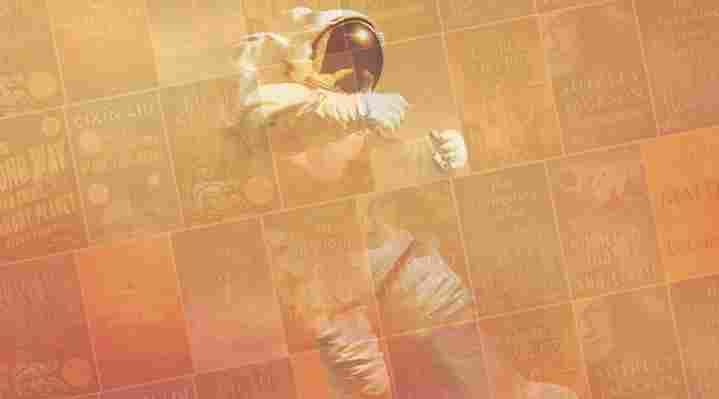
Perhaps it’s inevitable then that this decade has produced incredible art? That the artists of this era are working at extraordinary levels to try to do the work of exploring and deconstructing the rollercoaster we’ll all on? I’ve attempted to round up Ten Must-Read SFF Books of the 2010s, but this list could have had fifty other books on it and they’d also be must-reads.
The Broken Earth Trilogy by N.K. Jemisin
(Orbit, 2015, 2016, 2017)
If the 2010s has produced one true Titan of Fantasy, one person who’s going to be carved into a mountain beside Tolkien and Delany and Butler and Jordan, it’s gotta be N. K. Jemisin. The author penned two mammoth trilogies within the last decade, the Inheritance Trilogy and the Broken Earth Trilogy, and it’s the Broken Earth series in its entirety that I’m recommending here. The books address climate disaster, stolen magic, class issues, and slavery, but they also build an incredible, original magic system, and then they give you characters you want to hang out with, and nuanced baddies to hate. Plus they’re super funny, and human, and warm.
Not only did Jemisin become the first Black author to win a Hugo for Best Novel in 2016 for The Fifth Season, but the two subsequent volumes of the trilogy, The Obelisk Gate and The Stone Sky, also won, making her the first author to win the award for three consecutive years. If there’s one author who will serve as an inspiration to the next generation of fantasy writers, it’s N. K. Jemisin.
The Long Way to a Small, Angry Planet by Becky Chambers
(Harper Voyager, 2016)
Do you miss ‘90’s Star Trek? Do you love watching a crew of people from a lot of different walks of life learn to work together and grow as people (or, y’know, whatever) while their ship hurtles through the void of space? If yes, you probably want Becky Chambers’ work in your life. Her first novel, The Long Way to a Small, Angry Planet was Kickstarted and self-published in 2014 before being republished by Hodder & Stoughton. Chambers introduces readers to Rosemary Harper, a Martian-born human who joins the crew of the tunneling ship Wayfarer in order to ditch her old life. She gets a gig as the ship’s clerk, and tries to fit in with the rest of the shipmates while hiding her past—and why she had to leave it behind.
The Long Way to a Small, Angry Planet gave the 2010s character-driven sci-fi that made room for lots of different alien species, genderfluidity, characters hooking up in improbable ways, and, most important of all: it chose optimism in the face of the future.
The Martian by Andy Weir
(Broadway Books, 2014)
As Andy Weir’s novel unspools, we realize that the vast majority of it is made up of journal entries that Watney records without even knowing whether another human will see them. Far more than the profane and funny film, the book gets across the utter solitude of the only man on Mars. Best of all (and I never expected to type this sentence), this book is great because of all the math. Where the movie covered a lot of Watney’s survival tactics in a series of montages, Weir can really dig into his careful calculations, and the sense of dark humor and fatalism that creeps in as he realizes he might be, for lack of a better phrase, fucked.
As you read you understand in a much deeper way that this man’s survival comes down to his scientific and creative thinking. I can’t think of a work this decade that took more sheer delight in the power and inventiveness of the human mind.
The Goblin Emperor by Katherine Addison
(Tor Books, 2014)
I’ll cheat here slightly by saying this is my favorite fantasy book of the decade. I know I shouldn’t play favorites, but I can’t help it. A brief plot synopsis: eighteen-year-old Maia is the fourth, unwanted, half-goblin, straight-up banished son of the elven Emperor Varenechibel IV. When an airship explosion kills his father and all three of his elder brothers, Maia is suddenly left Emperor to a nation of elves who see him as an ugly and uncouth pretender. And, they’re not entirely wrong? Maia’s father never saw fit to give him any of the necessary training in statecraft, history, or even royal etiquette, so when he has to take over a hostile court he has to rely on his wits, empathy, and a sense of moral decency not often found in the rulers of nations.
Reading this book is a full, immersive, comfort-read joy—Addison carefully leads Maia and the reader into complex court intrigue and conspiracies, and we learn along with Maia as he slowly figures out who to trust and how to rule. But can he do it without becoming a tyrant like his father?
Ancillary Justice by Ann Leckie
(Orbit, 2013)
The first book in the Imperial Radch series did three amazing things: it messed around with gender in a really fun way; it questioned the very idea of individual identity and personhood; it told a gripping story that spread across generations. In the present-day story, Breq is on a quest for vengeance that gets sidetracked when she has to save an old crewmate. This narrative alternates with flashbacks to cataclysmic events 19 years earlier, when the starship Justice of Toren tried to induct the planet Shis’urna into the Radchaii Empire. Around these two plots, Leckie opens a conversation about gender roles by defaulting to female personal pronouns, and creating a character, Breq, who for various complicated reasons can’t differentiate between genders and has to guess. She asks questions about the nature of consciousness through some characters who are seem like individuals, but are actually arms—ancillaries—of one larger shared consciousness.
While Ancillary Justice might not the best sci-fi for people brand new to the genre, it’s incredibly rewarding once you sink into its world—and for SF fans, watching how Leckie tweaks tropes and conventions makes for a stunning reading experience.
The Changeling by Victor Lavalle
(Spiegel & Grau, 2017)
I reviewed Victor LaValle’s The Changeling upon its release, and I said then that it was one of the best books I’d read that year. In the years since, I can say that there are few books that have stuck with me the way that one has. Two scenes in particular are such indelible setpieces—but hang on, let me give you a plot synopsis. Apollo Kagwa and his wife, Emma Valentine, are sharing a storybook romance. She’s a librarian, he’s a rare book dealer—one of two Black men working in that trade in New York City (the other one is his best friend, Patrice). Apollo and Emma have a beautiful baby together—but then everything falls apart. Emma seems to turn into a different person, distant and filled with rage. Apollo is so haunted by his own father’s abandonment that he’s overcome with an almost obsessive love for his son. And when tragedy hits the young family, Apollo finds himself in the sort of dark, blood-drenched fairy tale that Vikings used to tell around the fire.
At heart this book is a classic bildgungsroman, but it’s a bildungsroman set in a starkly modern New York City, and it centers on a Black man who has to spend as much time grappling with his city’s racism as with all the classic tropes of a quest. It’s about parenthood and emotional labor and how social media destroys our identities. But leaving all the critical analysis aside, what makes this book a must-read is that it’s a beautiful love story tangled together with one of the scariest horror novels I’ve ever read.
Stories of Your Life and Others by Ted Chiang
(Vintage, 2010)
This book of short stories is probably best known as “The one that has the story Arrival is based on, in which Amy Adams was robbed of the Oscar yet again,” but it’s much more than that. First of all, that story, “The Story of Your Life,” is a delicate, incandescent exploration of love and grief that unfolds in a different way and with a much different impact than the (excellent, imo) film. But that’s only one classic in a book full of them.
The stories here, including the Nebula Award-winning “Tower of Babylon,” the Sidewise Award-winning “Seventy-Two Letters” and the Hugo, Locus, and Nebula Award-winning “Hell is the Absence of God” are infused with mathematical concepts and conversations about physics. Many of the stories are also probing explorations of the nature of faith, as in “Tower of Babylon,” an account of the construction of the Tower of Babel which does not go as the reader expects; “Division by Zero,” which follows the mental collapse of a mathematician who loses her faith in the consistency of math itself; and “Hell Is the Absence of God,” a novelette that explores the aftershock of an angelic accident in a universe where God, angels, Heaven, and Hell all irrefutably exist. Whatever the subject, the stories are all deep explorations of what it means to be human—and how one can be a feeling, compassionate person in a relentlessly rational universe.
Shirley Jackson: A Rather Haunted Life by Ruth Franklin
(Liveright, 2016)
I wanted to include at least a little non-fiction here, and I could think of no better book than Ruth Franklin’s comprehensive biography of Shirley Jackson. Jackson’s life was shot through with pain—her mother was an emotionally manipulative nightmare, and her husband, the literary critic Stanley Edgar Hyman, was a serial adulterer whose behavior certainly didn’t help her struggles with depression. But Jackson fought back with dark wit. She didn’t just raise a family, she wrote two riotous collections of domestic observation—Life Among the Savages: An Uneasy Chronicle and Raising Demons, which sort of turned her into a mid-50s Erma Bombeck…who told reporters she practiced witchcraft (and quite possibly did). She hosted a sparkling and diverse literary circle in her home in Vermont, which included her close friends Ralph and Fanny McConnell Ellison. And, of course, when she wasn’t doing all of that she wrote “The Lottery,” which quickly became one of the most infamous short stories in American literary history, and the greatest haunted house novel of all time in Haunting of Hill House. And that’s just barely scratching the surface of her literary output.
Franklin uses the book not just to excavate the frustrating facts of Jackson’s pre-Second Wave life, but also to make it clear that Jackson was one of the foremost writers of the 20th Century, in any genre or any gender. Shirley Jackson: A Rather Haunted Life is an indispensable biography for writers, horror fans, and feminist literary critics alike.
The Three-Body Problem by Liu Cixin, translated by Ken Liu
(Chongqing Press, 2008/Tor Books, 2016)
Liu Cixin’s The Three-Body Problem is the first novel in the Remembrance of Earth’s Past trilogy (the subsequent two books are titled The Dark Forest and Death’s End). This book is a work of hard science fiction the focus here is on huge ideas and scientific possibility rather than the “softer” science of say, the Becky Chambers book mentioned above. But where Three-Body vaults itself into the pantheon of sci-fi classics is by tying the terror and dread of alien invasion into a decade-spanning look at the Cultural Revolution and its aftermath.
Without giving away too much of the plot: a professor named Ye, whose family was torn apart during the Revolution, receives a message that an alien species called the Trisolarans will invade Earth if they learn of its existence. Because her experiences have made her despise humanity, she teams up with an environmentalist who blames humans for ravaging the Earth (fair point) to try to intentionally court invasion. Years later, a different team of researchers attempt to stop the invasion, or at least prepare for it if it comes.
Three-Body was the first Asian book to win the Hugo for Best Novel and its massive success in China led to a whole new wave of Chinese science fiction that is completely reshaping that country’s publishing industry and reading habits.
Words Are My Matter by Ursula K. le Guin
(Small Beer Press, 2016)
Le Guin’s decades-long career is the soil from which two generations of SFF have grown. Her stories and novels have nurtured mind upon mind, and it is impossible to overstate her influence on the genre, or the depth of loss the SFF community felt at her passing in 2018. I could have chosen any one of the books she published over the past decade and they’d be worthy of inclusion. I chose Words Are My Matter because it is such a delightfully wide-ranging collection of essays and interviews and it introduces a reader just how expansive Le Guin’s thought process was. It includes her thoughts on authors from Philip K. Dick to Virginia Woolf, as well as a cornucopia of incisive writing advice. It also shows you just how funny she could be, as in this, from the essay “Genre: A Word Only a Frenchman Could Love”:
Re-Fi is a repetitive genre written by unimaginative hacks who rely on mere mimesis. If they had any self-respect they’d be writing memoir, but they’re too lazy to fact-check. Of course I never read Re-Fi. But the kids keep bringing home these garish realistic novels and talking about them, so I know that it’s an incredibly narrow genre, completely centered on one species, full of worn-out clichés and predictable situations—the quest for the father, mother-bashing, obsessive male lust, dysfunctional suburban families, etc., etc. All it’s good for is being made into mass-market movies.
(I’ll admit I have an unrepentant soft spot for Re-Fi, but that still made me blush the first time I read it.) Plus, this book collects her searing 2014 National Book Award speech, here titled “Freedom”:
Books, you know, they’re not just commodities. The profit motive often is in conflict with the aims of art. We live in capitalism. Its power seems inescapable. So did the divine right of kings. Any human power can be resisted and changed by human beings. Resistance and change often begin in art, and very often in our art—the art of words.
I think I’ll end the list on that. Happy New Year, everybody.
Like this: Like Loading...
29 of the Best Science Fiction Books Everyone Should Read
Price: £9 | Amazon | Waterstones | Foyles | Audible trial
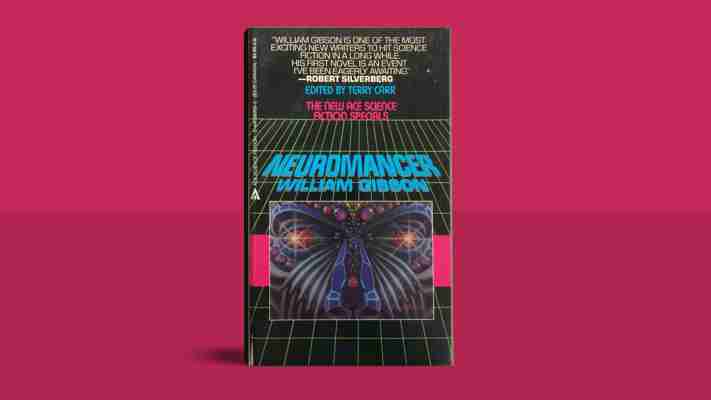
Borne, by Jeff VanderMeer (2017)
The Annihilation series showcased Jeff VanderMeer's gift for the surreal, and he turns it up a notch in Borne – which starts with an unknown scavenger plucking an object from the fur of a giant flying bear in a post-apocalyptic city, and only gets weirder from there as the main character strikes up a friendship with an intelligent sea anemone-like creature called Borne. The story is, it eventually transpires, one of biotechnology run amok – which makes for the most colourful dystopia you're likely to come across.
Price: £9 | Amazon | Waterstones | Foyles | Audible trial
Moonrise: The Golden Age of Lunar Adventures, by Mike Ashley (2018)
Moonrise, from the British Library's Science Fiction Classics series, could just have easily appeared in the 1950s or even the 1900s in this list. It's a brilliantly curated anthology of twelve SF short stories about the moon – getting to it, exploring it, contemplating it – with lunar-inclined fiction from H.G. Wells and Arthur C. Clarke present and correct but also the likes of Judith Merril's 1954 Dead Centre, which distills all the potential tragedies of space programs into just a handful of haunting images. From author and science fiction historian Mike Ashley.
Price: £9 | Amazon | Waterstones | Wordery | Audible trial
Exhalation, by Ted Chiang (2019)
Exhalation is a book of short stories rather than a novel, but hear us out. Ted Chiang is a fantastic science-fiction writer who weaves real science and theory into his tales. This makes them feel somehow part of this world despite dealing with a range of classic sci-fi themes, including parallel realities, robot pets and time travel.
From a circular time travelling portal in ancient Baghdad to a device that allows you to meet your parallel self that you can trade-in at a local store in the present day, it’s glorious science-fiction filled with wonder and mystery. There are stories and ideas nestled in Exhalation’s pages that stick with you long after you’ve finished reading. Chiang has breathed life into the science-fiction genre, creating stories that feel refreshing and human rather than concerning distant worlds and ideas that can lead to a disconnect. This is evident in his short story Story of Your Life, the source material for Denis Villeneuve's Arrival.
Price: £8 | Amazon | Waterstones | Audible trial
The Resisters, by Gish Jen (2020)
A speculative dystopia set in an 'Auto America', Gish Jen's The Resisters, which was published in early 2020, puts the sport of baseball – of all the things – at the centre of her world, which is divided into people who still get to have jobs, the Netted, as in 'Aunt Nettie', as in the internet, and the rest: the Surplus. The story centres on Gwen, who comes from a Surplus family but who has the chance to rise in status when her baseball skills get attention, with Jen taking on surveillance culture and the value of work and leisure.
Price: £18 | Amazon | Abe Books | Audible trial
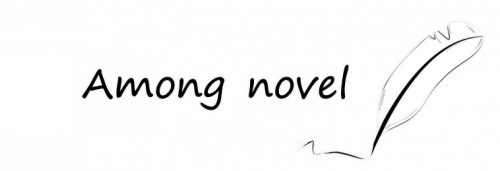
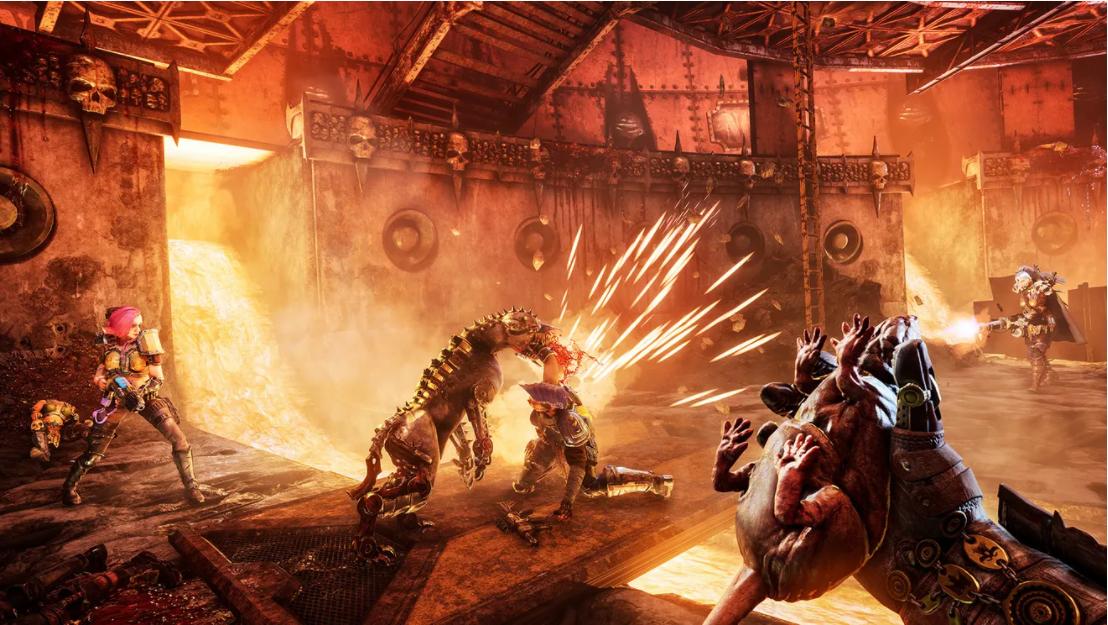
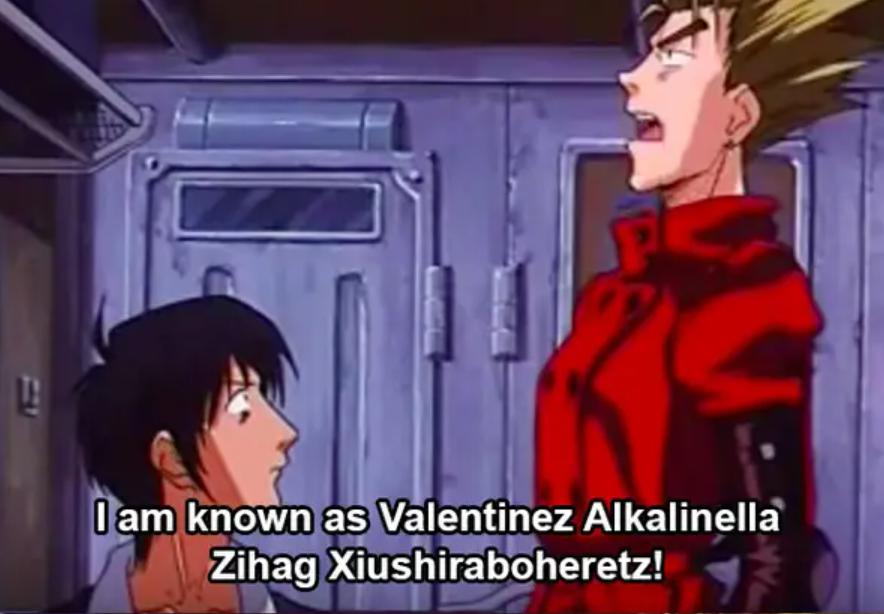
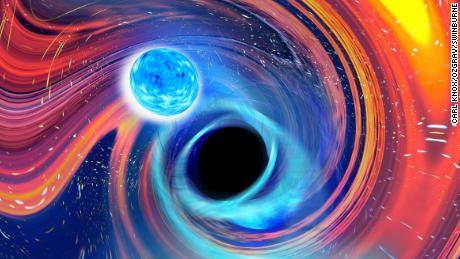


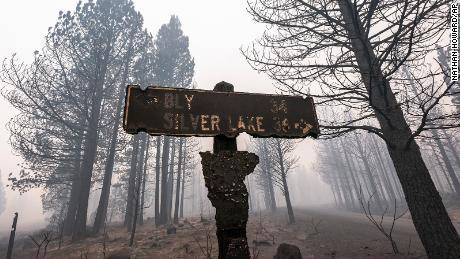


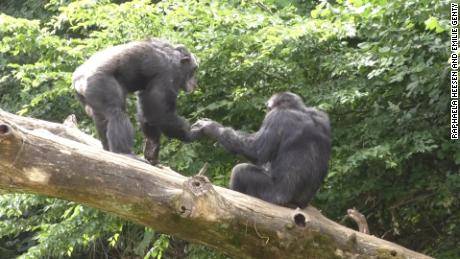

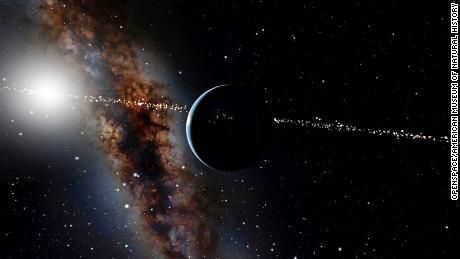
Write a Comment